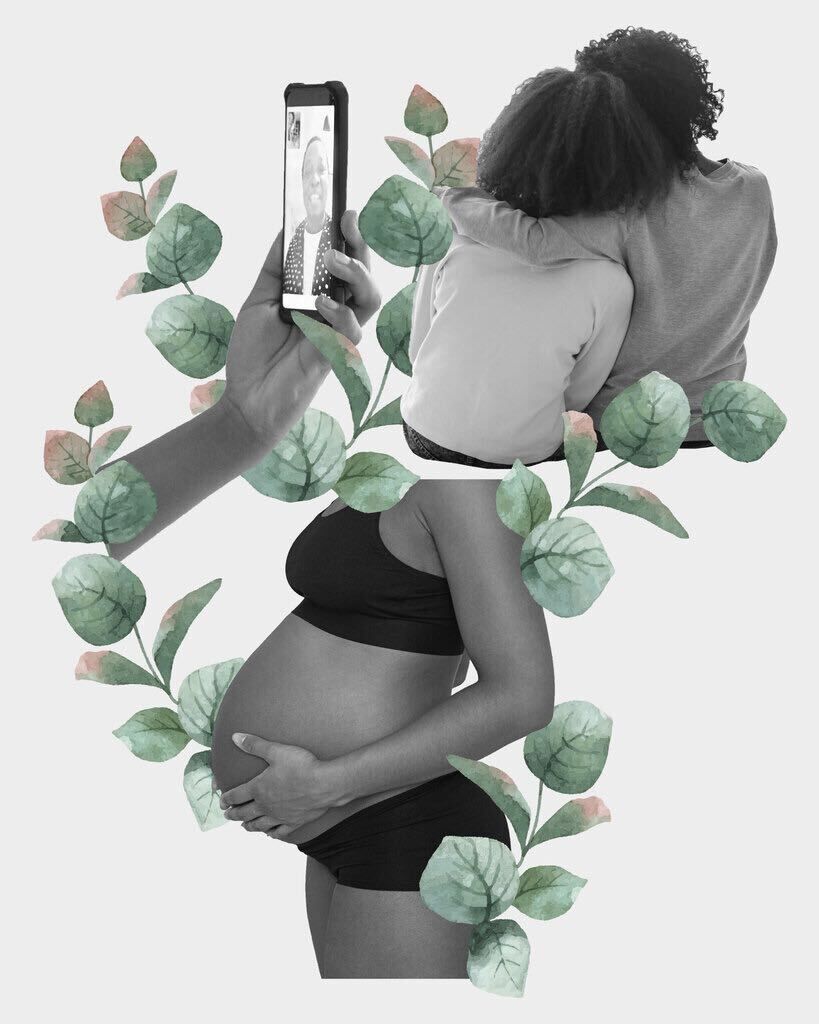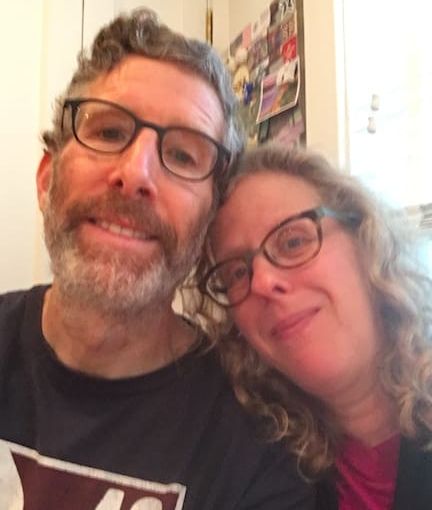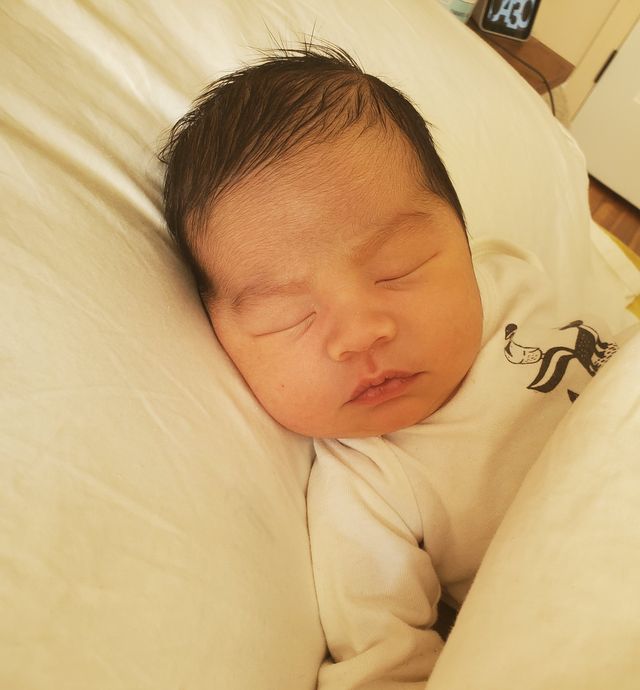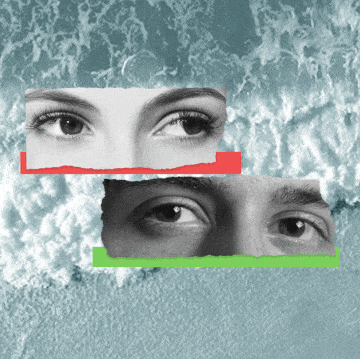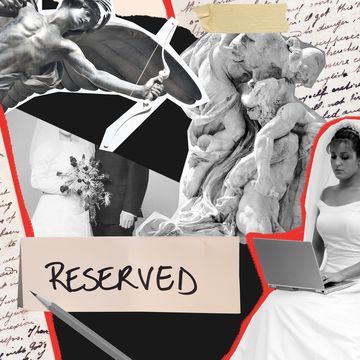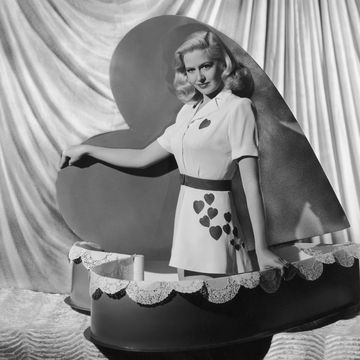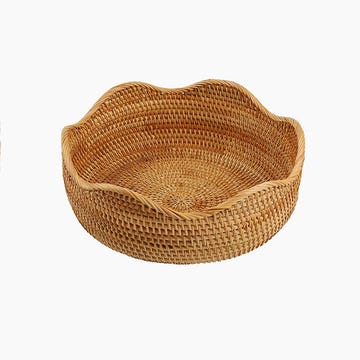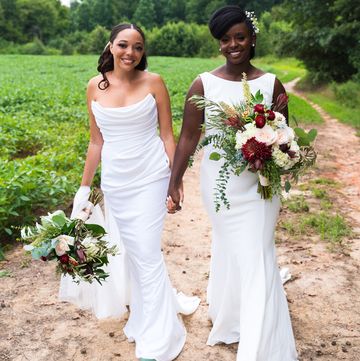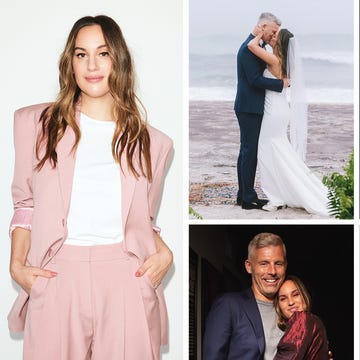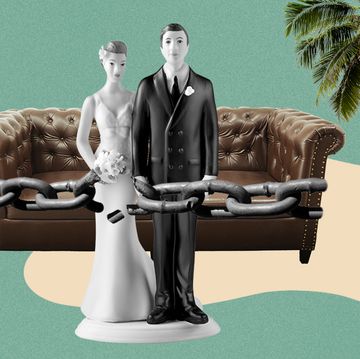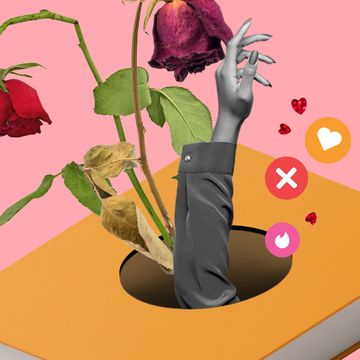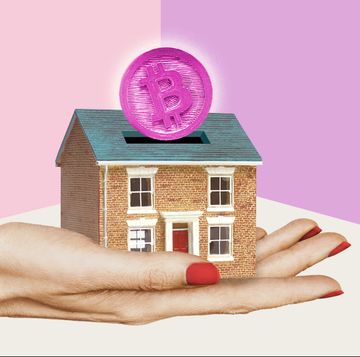This Mother's Day will look a lot different from what we've come to expect. For most people, there won't be large gatherings of family or casual hugs exchanged. Right now, it seems, keeping each other safe is the best way to celebrate.
It's an understatement to say the pandemic has reshaped how we view every aspect of our lives. So in honor of the upcoming holiday, ELLE.com spoke to three women about how the COVID-19 crisis has changed how they're thinking about motherhood this year, from those who are about to become mothers to those who are seeing their own in a new light.
Learning New Ways to Communicate
"I first found out my dad was sick. It was toward the end of March, and he said he had some mild symptoms, like coughing and aches. I think he had a fever for one day. Then shortly after, my mom told us she wasn't feeling well. She had gotten a test because she has asthma and a couple of other prior health issues, which eventually came back positive. We were all really worried; I had a feeling my mom would be the one to get sicker.
At first, it was the fever. Then her fever went away, and we all hoped she was done. But it around day 10 when things got worse. She was feeling chest tightness, and her oxygen levels were at the point where you would normally go to the hospital. She didn't because she was in Queens, New York, where the hospitals were really crowded. A doctor she was working with was able to prescribe her medicines to take at home, and luckily, she was able to stabilize. I don't know if I would say she’s fully recovered now, but she's definitely doing a lot better. She's getting respiratory therapy and is able to exercise again.
The reason I know so much about her experience is because after she recovered, she asked if she could write something for my newsletter about it. That was the first time that I got this very honest, first-hand look. During the time she was actually sick, my dad would send daily updates, but there wasn’t always a ton of detail. My sister and I were constantly like, 'What's going on? How's this?' My mom was trying to put on a brave face to reassure us because I know she was really scared, too.
I'm in my mid-to-late 20s, and I want my parents to be honest with me. But I also understand they were overwhelmed dealing with her symptoms and trying to update so many family members and also not lose their minds. While she was sick, I was really distracted. I wasn't telling that many people; I didn't want it to be the subject of every conversation. I didn't really want people's sympathy or pity. I had to stop reading as much of the news because there were so many stories of people who were dying or hospitalized. I was already imagining the worst.
My mom struggled with certain health issues in the past, but never anything of this severity, and it made me see her as more vulnerable. I also see that my mom definitely doesn't want to make other people do things for her. She was very cared for, but as soon as she could, she wanted to flip the dynamic back. It’s why people love her so much, in a lot of ways, because she's always trying to go out of her way for people. It made me want to be more conscious about making sure that's a two-way street. I think it's also about respect; I want to be able to respect how she wants to be treated.
My sister and I have had a lot of conversations with our parents about communication, about how in these hard times we don't want to be thought of as younger members who need to be shielded from things. We want to be able to chip in and help and not have anything sugar-coated for us. Having the actual information didn't make me feel worse, it made me feel more informed and more in control." —Abigail Koffler, 26
Becoming an Advocate For My Son
"I found out I was pregnant on Halloween last year, and I’m due on June 25th. I've always wanted to be a mom. I had a lot of expectations for pregnancy and motherhood, and it was always something I really looked forward to. Now, a lot of those expectations have been turned on their head.
The unknown of the hospital experience is mostly what freaks me out. When I give birth, I’ll be limited to one support person, and nobody can come visit us. Our families aren't going to get to come meet the baby in the hospital. We're unable to hire a doula or a midwife, which is kind of difficult, especially because I'm undecided on pain management and I think it would be so helpful. Our hospital canceled all their in-person birth classes, so we're trying to do videos online. It's not quite the same.
What's really changed for me is I feel like there was a huge focus on community and having your tribe and being with other pregnant mothers or your family before and during recovery. The experience of being pregnant was more centered on the mother. It's about going to a baby shower, where the mom gets celebrated. But, for me, now everything is about the health of the baby. I would die to just go to Trader Joe's, something so simple, just get out of the house. But it really forces me to be more selfless. Even if it's a small chance, is that worth the health of my baby?
It's also prepared me to be an advocate for him, more than I would have otherwise. There have been times we’ve had to set boundaries. People will say, ‘Oh well it’s stay-at-home, but it’s fine if we’re six feet apart. We should still hang out.’ Or there will be family that wants to see us. It’s been hard. Even going to the doctor, some of our appointments feel a bit rushed, and we really have to push to get answers.
It's been a transition, but at the same time I'm thankful I have the opportunity to make sure he's safe. It really is trial by fire." — Megan Acuna, 24
Finding Support From Other Moms
"My baby, Rocco Wang, was born on Monday, March 23rd, at 5:56 AM. At first, I wasn’t too worried about giving birth. But as it got closer to my due date, I saw that partners and visitors were being denied access to hospitals. Every day it changed so much. All of a sudden, my husband couldn’t even come into the waiting room with us, and then everyone was wearing masks. I could see this really clear progression of people acting more serious. At that point, I just wanted to have the baby and get in and out of the hospital as soon as possible.
During delivery, my husband was such a good cheerleader. He gave me minute-by-minute updates of what the baby looked like as he left my body: 'He has so much hair. He has so much hair.' Ten minutes after I delivered the baby, the hospital staff came into the room and handed us all masks. They said, 'This is the new policy as of 6 AM.' The first time I held him, I took the mask off. I didn’t want that to be his first eye-opening experience.
Six hours after I delivered, they stopped allowing visitors all together. The postpartum wing was eerily silent. The midwife from my practice told me that even C-section patients were being released early.
I have another son who's 21 months, and when I gave birth to my first, it was so different. The maternity ward, the labor and delivery floor, and the postpartum wing were packed. People were there with gifts, with balloons. But this time it was just desolate.
Since no visitors were allowed after noon, my husband helped me get settled before he was kicked out. The head nurse on each floor came around to personally tell you that everyone was going to have to leave. You just had this baby, and you just want to be able to spend time together as a family.
After that, I didn't have anyone there for 24 hours, no one to go get me a snack or something from outside. We didn't know that policy was changing, so we didn't pack enough food. I was sad. I was worried. I started to have this minor complication from my epidural, and I had a really horrible spinal headache.
But that time was also really quiet, and me and my baby got to spend a full 24 hours just cuddled in bed. We got to really know each other. Now, me and him have that little bond.
For anyone who’s worried about giving birth now, the hospitals are doing everything they can to make sure you're safe. It's horrible to have to give birth at this time, but we will all have this shared experience. Rely on those mommy groups. For me, it was really nice to read the texts from everyone, to hear all the other women say to me, 'I'm so sorry,' or, 'Congrats.' There’s so much support with other mothers going through the same thing, with everyone processing it in their own way. In the end, it'll be a very short couple of days in the grand scheme of you and your baby's life. "—Katie Sachsenmaier, 33
These interviews have been edited and condensed. Additional reporting by Rose Minutaglio.

Madison is a senior writer/editor at ELLE.com, covering news, politics, and culture. When she's not on the internet, you can most likely find her taking a nap or eating banana bread.
